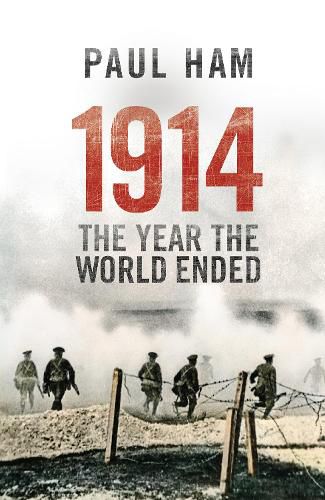Readings Newsletter
Become a Readings Member to make your shopping experience even easier.
Sign in or sign up for free!
You’re not far away from qualifying for FREE standard shipping within Australia
You’ve qualified for FREE standard shipping within Australia
The cart is loading…






In this searing indictment of the rationale behind the First World War, Paul Ham argues that European leaders did not ‘sleepwalk’ into war, but that they fully accepted and understood the consequences of the decisions they were making.
In August 1914, the European powers plunged the world into a war that would kill or wound 37 million people, tear down the fabric of society, uproot ancient political systems and set the world on course for the bloodiest century in human history.
On the eve of the 100th anniversary of that terrible year, Ham takes the reader on a journey into the labyrinth, to reveal the complexity, the layered motives, the flawed and disturbed minds that drove the world to war. What emerges is a clear sense of what happened and why. ‘To understand the past,’ Ham concludes, ‘and share that understanding, is the chief role of the historian. To understand the past is to liberate ourselves from its awful shadow and steel ourselves against it happening again.
$9.00 standard shipping within Australia
FREE standard shipping within Australia for orders over $100.00
Express & International shipping calculated at checkout
In this searing indictment of the rationale behind the First World War, Paul Ham argues that European leaders did not ‘sleepwalk’ into war, but that they fully accepted and understood the consequences of the decisions they were making.
In August 1914, the European powers plunged the world into a war that would kill or wound 37 million people, tear down the fabric of society, uproot ancient political systems and set the world on course for the bloodiest century in human history.
On the eve of the 100th anniversary of that terrible year, Ham takes the reader on a journey into the labyrinth, to reveal the complexity, the layered motives, the flawed and disturbed minds that drove the world to war. What emerges is a clear sense of what happened and why. ‘To understand the past,’ Ham concludes, ‘and share that understanding, is the chief role of the historian. To understand the past is to liberate ourselves from its awful shadow and steel ourselves against it happening again.